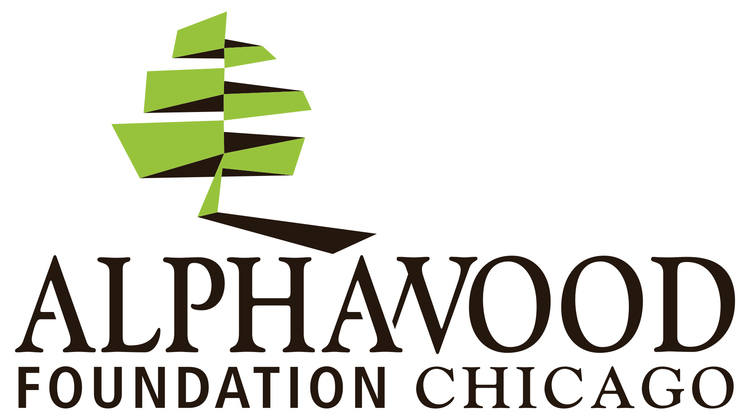I recently had the opportunity to speak with VIA Art Fund President Bridgitt Evans on the state of arts philanthropy. When asked about donor giving in the face of cuts to public funding, Evans said the following:
People and organizations will do what they always do, and that is to double down on fundraising, appealing to their most trusted supporters, and adjust their program to meet their revenues.
This was an astute observation in terms of what it didn't say. That is, when faced with cuts, organizations' first impulse is to look outward to donors and supporters, rather than inward. Few want to embark on a messy and disruptive strategic reorganization. It's usually easier to secure that big check to fill the gap. But what if that check never arrives?
The Chicago Department of Cultural Affairs and Special Events, along with Alphawood Foundation, the Gaylord and Dorothy Donnelley Foundation (GDDF), and the Richard H. Driehaus Foundation—collectively known as AD3—understand this dilemma, so they created an "Innovation Bootcamp" geared toward small nonprofit organizations in the Chicago area.
Now in its second year, the program cultivates "unconventional thinking to address chronic, often common, operational challenges to an organization’s capacity and sustainability."
If this sounds like foundations banding together to "teach an arts organization to fish," you'd be correct. While some foundations may be drawn to—and I'm quoting Evans again—"continuous expansions" and "blockbuster exhibitions"—others, acutely aware of potential cuts to public funding, have a vested interest in seeing small arts organizations operate as effectively as possible.
Take the Alphawood Foundation, the philanthropic vehicle for reclusive millionaire Fred Eychaner. The foundation funds arts organizations that—to quote its site—demonstrate both artistic and "managerial effectiveness."
Then there's the Gaylord and Dorothy Donnelley Foundation, which famously hosted a launch party at a Chicago bowling alley to celebrate its commitment to small arts organizations a couple of years ago.
"Organizational capacity building may sound boring to some," said Chicago Program Director Arthur Pearson. "But it's what a lot of our grantees tell us they need. And for those who really run with it, building stronger arts organizations is its own creative act."
Meanwhile, the Richard H. Driehaus Foundation partners with the John D. and Catherine T. MacArthur Foundation to provide general operating support to Chicago-area arts and cultural organizations with annual budgets up to $500,000, plus capacity building offerings geared to small and midsize organizations.
Concerns around "managerial effectiveness" and "organizational capacity building" underscore the catch-22 of running an arts organization in an uncertain funding climate. On one hand, operational effectiveness is critical to an organization's long-term sustainability. On the other hand, building for organizational effectiveness often requires something in short supply at small arts organizations: money.
Adjusted for inflation, public arts funding is 15 percent lower today than it was 20 years ago. And with more cuts looming, the future looks ominous. "When grant funding is slashed, the organizations that suffer most are the smaller groups, which have lower levels of visibility among other donors," notes a recent report, "Diversity in the Arts," by the DeVos Institute of Arts Management.
Which brings me back to AD3's Innovation Bootcamp.
According to the GDDF, the Chicago-based Greater Good Studio will provide workshops and individualized coaching sessions where organizations will "learn to harness and apply their inherent creativity to an issue they wish to address." Participants will "develop a process to identify their own unique needs and assets and then create tailored solutions that they can immediately put into practice."
The Innovation Bootcamp's primary question, captured in this video, is: "How might we channel arts organizations' creativity to tackle their administrative challenges?"
To arrive at an answer, Greater Good rolls out its "Human Centered Design" methodology, which consists of five phases: research, to understand needs of users; synthesis, which translates research into insights; concepting, in which participants storyboard the most promising concepts; prototyping, in which workshop leaders help create models for participants; and storytelling, in which participants summarize their findings.
The bootcamp's 2017 cohort of five organizations tackled operational challenges such as fundraising, membership, board engagement, communications and audience diversification. The 2018 cohort includes 6018 North, Chicago Independent Radio Project, Fifth House Ensemble, Opera-Matic, Shattered Globe Theatre, and South Side Community Art Center.
The Innovation Bootcamp began on May 2nd and culminates in a public event on November 6th at the Chicago Cultural Center, where the six participating organizations will share their challenges, solutions and bootcamp experience.
Bottom line here? First, in a precarious funding climate, Alphawood, Donnelley, and Driehaus Foundation support underscores the growing influence of institutional arts funders in "boring" areas like capacity building that traditionally lack robust individual support, and to a lesser degree, public support.
And while looming cuts aren't explicitly mentioned in Donnelley's press release, I'd argue it's the elephant in the room. The election of President Trump and the proposed elimination of the NEA has cast a shadow over all arts-related giving over the past six months.
Let's also not forget that state support isn't set in stone, either. A member of the Innovation Boot Camp's 2018 cohort, Shattered Globe Theatre, receives funding from the Illinois Arts Council and the City of Chicago Department of Cultural Affairs & Special Events. Illinois is flirting with bankruptcy—the state, according to Governor Bruce Rauner—is heading into "banana republic territory," while the city of Chicago is immersed in a severe public school funding crisis.
The Alphawood, Donnelley, and Driehaus Foundations understand this. Should cuts materialize, they'll have to decide whether to ratchet up their giving to keep organizations afloat. For the time being, they're pushing the idea that operational effectiveness can boost innovation and sustainability, and in the process, act as a financial bulwark against potential cuts.
